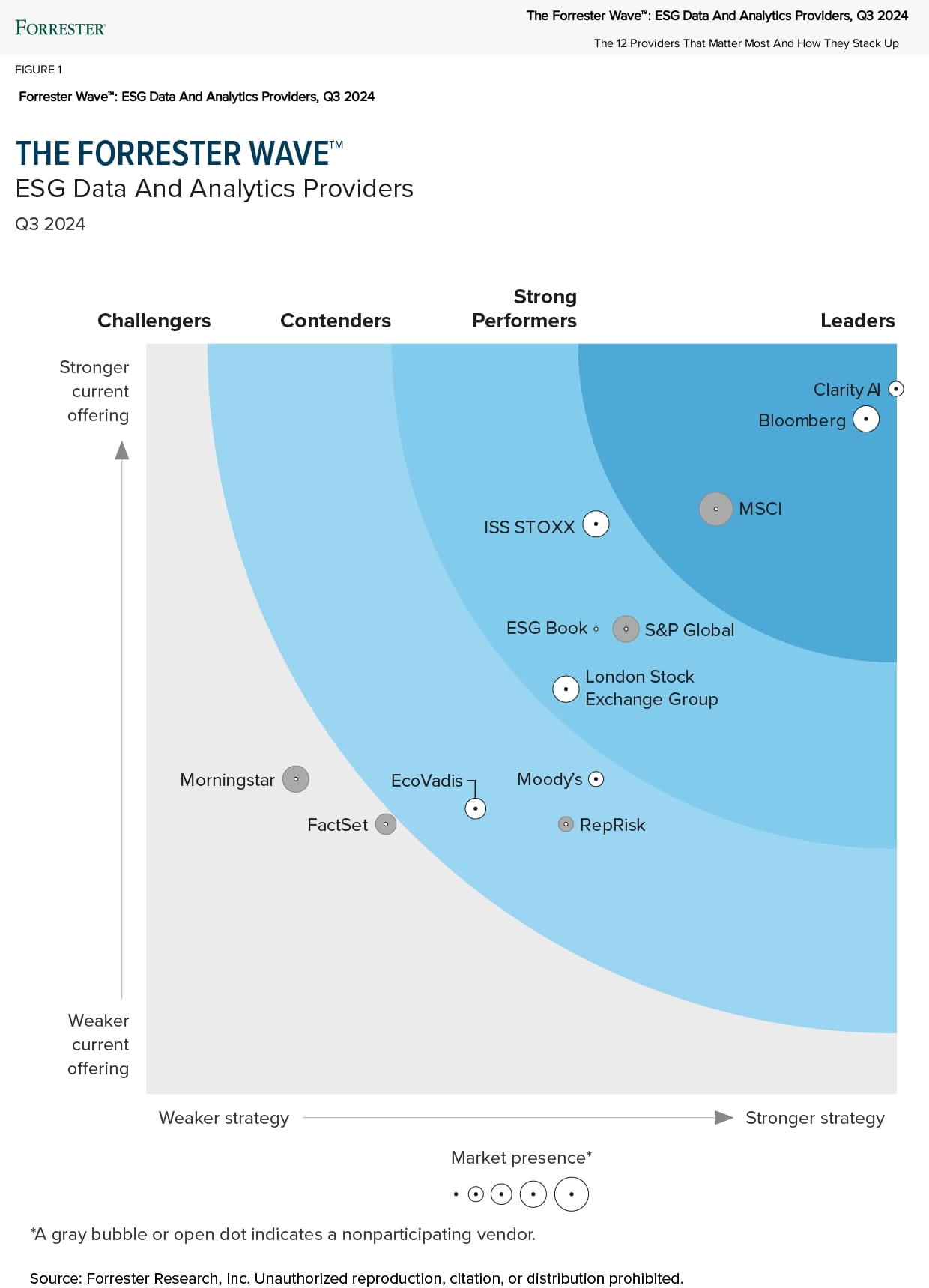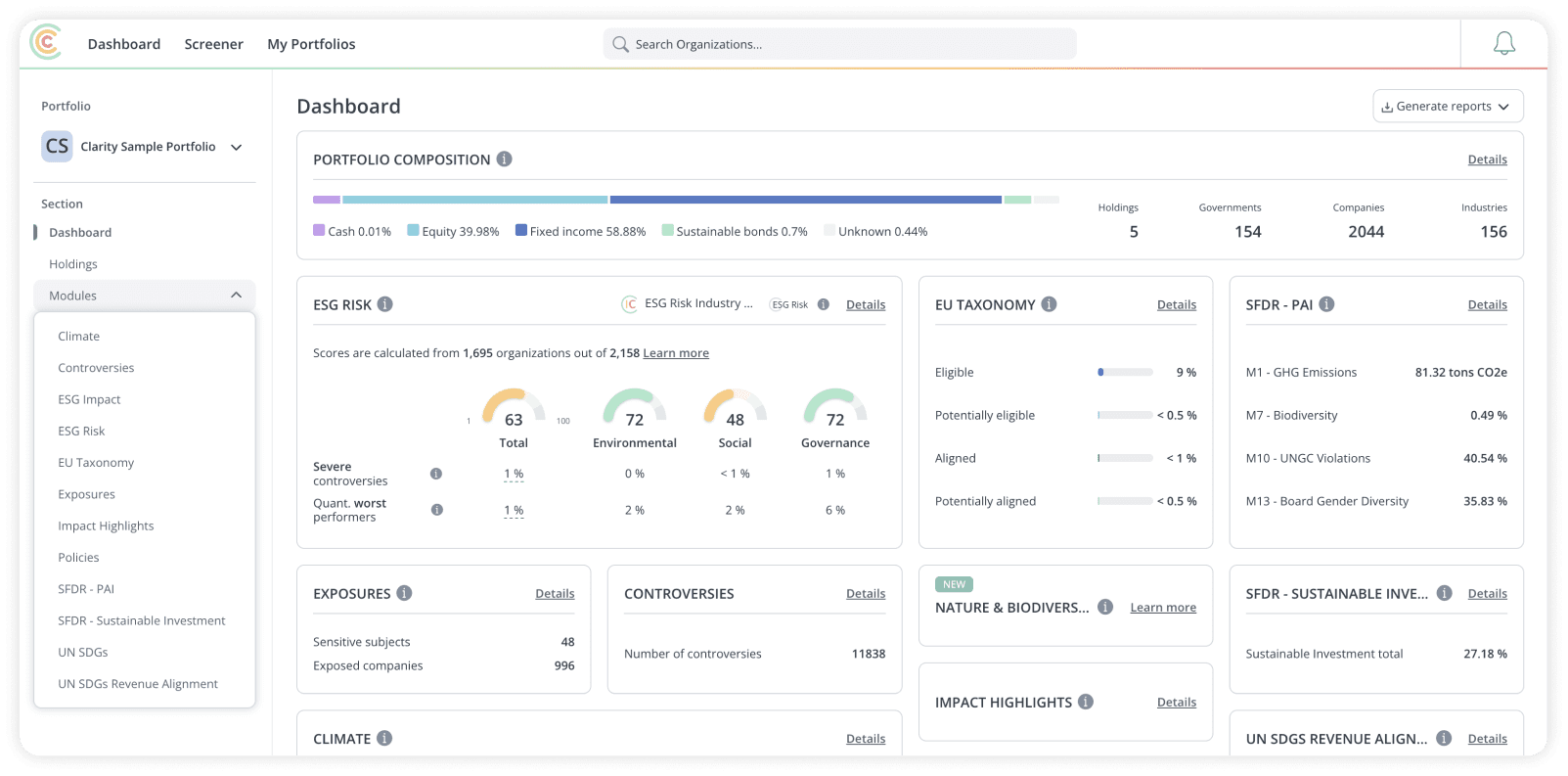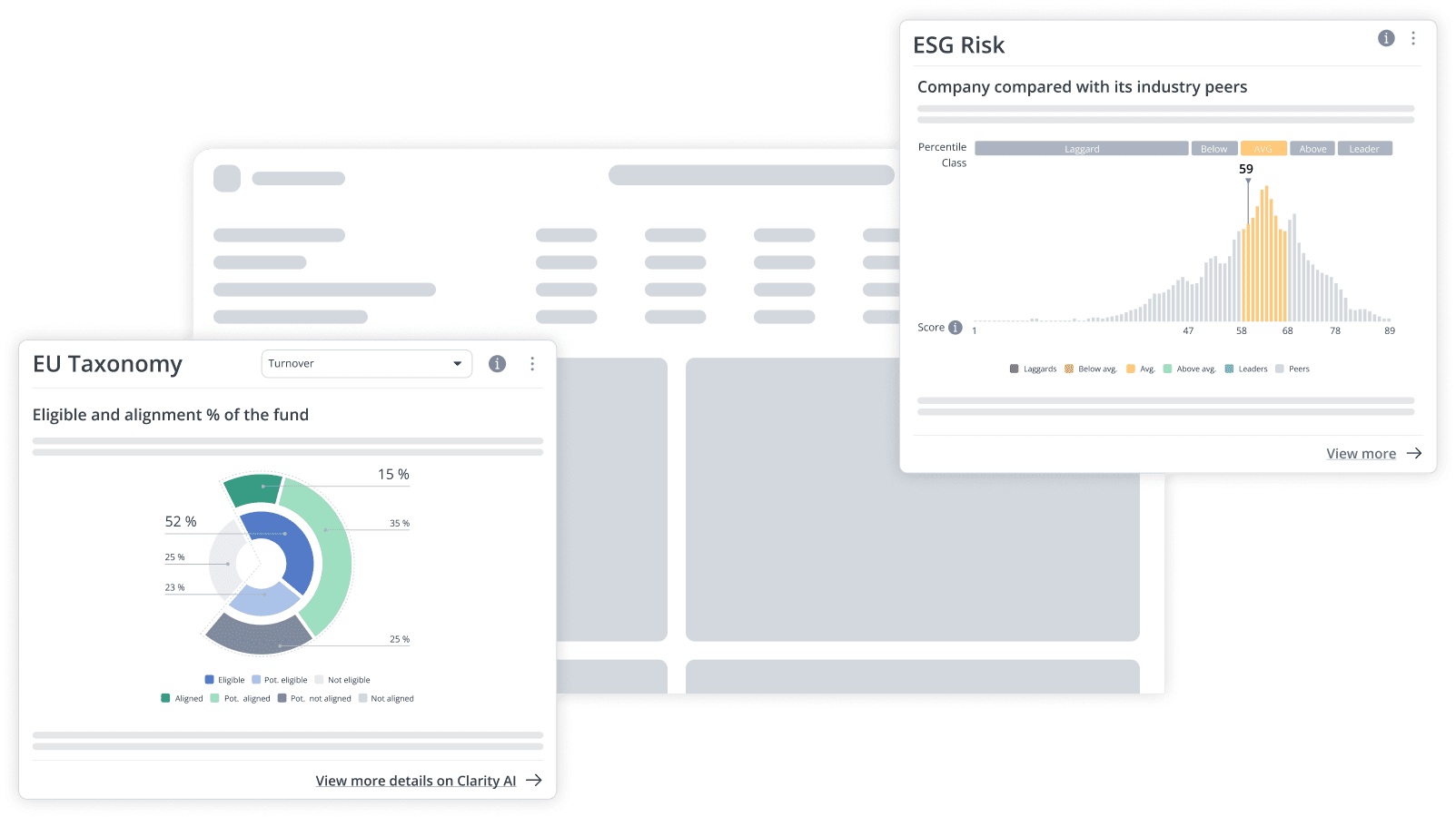From SFDR developments to delays at the SEC to biodiversity in Japan – it’s been a busy month for sustainability regulations
Last month witnessed significant sustainability regulatory developments across the globe, especially in relation to the EU Sustainable Finance Disclosure Regulation (SFDR), where the European Commission responded to queries from the European Supervisory Authorities (ESAs), providing clarification on key issues. Notably, the definition of sustainable investment under SFDR requires financial market participants to conduct their own assessment and disclose underlying assumptions. Additionally, there was further clarity that carbon-reducing products can be classified as Article 9 under SFDR, regardless of investment strategy, potentially reversing many of the “downgrades” witnessed in late 2022. The consultation on amending SFDR’s Regulatory Technical Standards (RTS) was also published and highlighted potential changes (not expected to take effect before 2024), including the extension of mandatory Principal Adverse Impacts (PAIs) and modifications to reporting templates. Alongside SFDR, the Commission is considering eliminating mandatory indicators under the Corporate Sustainability Reporting Directive (CSRD) and introducing materiality assessments. Also, the Parliament adopted its final position on the Corporate Sustainability Due Diligence Directive (CSDDD) .
In other regions, the US’s SEC-driven climate disclosure rule publication continues to be delayed, Japan has released guidelines for biodiversity conservation, Hong Kong has issued climate stress testing guidelines and a Taxonomy, and India introduced a framework for green deposits. On the international stage, the International Sustainability Standards Board (ISSB) is seeking stakeholder input on work priorities and making non-climate-related metrics globally applicable, and the International Organization of Securities Commissions (IOSCO) has announced its work program for 2023/24, focusing on addressing emerging sustainability risks and establishing assurance standards for sustainability disclosures.
For more detail on all these developments, read on.
European Union
SFDR: Two significant regulatory developments related to the SFDR took place last month and continue to have an impact on the sustainable investment industry in Europe. The first was the European Commission’s response to the ESAs’ queries, which addressed several important points.
Here are the five key points to keep in mind from the Q&A:
- Further clarification to the SFDR definition of sustainable investment under Article 2(17) of SFDR: financial market participants are required to conduct their own assessment for each investment and disclose their underlying assumptions, as the SFDR does not set out minimum requirements for the key parameters of a “sustainable investment” under Art. 2(17) (SI). SI can be considered at the level of economic activity or company.
- Carbon-reducing products can fall under Article 9(3) SFDR: financial products aiming to reduce carbon emissions can be classified under Article 9(3) of SFDR regardless of passive or active investment strategy, but financial market participants must explain their active investment strategy and its sustainability objectives.
- More clarity on how benchmark tracking strategies are treated under SFDR: SFDR does not prescribe the use of specific benchmarks. However, if a fund tracks a Paris-Aligned Benchmark (PAB) or Climate Transition Benchmark (CTB) under Article 9(3), it will be deemed to be automatically making 100% SI (i.e. no “look through” analysis of the investments required). Where PAB or CTB are not used under Article 9(3), financial market participants must explain how the emission reduction supports the Paris Agreement’s long-term objectives.
- “Consideration” of Principal Adverse Impacts (PAIs) in investment decisions: the Commission provided further clarity of what it means to “consider” PAIs. Financial market participants must describe the adverse impact and detail the procedures in place to mitigate those impacts in order to demonstrate how they “consider” a specific PAI.
- DNSH: the presence of a “transition” plan alone is not sufficient to demonstrate Do No Significant Harm (DNSH).
The second was the ESAs Consultation to amend the regulatory technical standards (RTS) under SFDR. For the consultation, here are a few key insights:
- Changes not due before January 2024: with the consultation open until July 4, 2023, any changes to SFDR and Taxonomy regulations are not expected to come into effect until at least 2024, but fund managers should begin preparing for these changes.
- Extension of social PAIs: four new mandatory PAIs are proposed: revenue earned in countries which do not cooperate with the EU on tax, involvement in production of tobacco, whether the company tries to block trade unions, and percentage of staff earning less than an adequate wage. The ESAs also suggest changes to existing PAI calculations including clarification on the meaning of “all investments” and the treatment of derivatives under SFDR and EU Taxonomy.
- Changes to level 2 reporting templates: ESAs plan to make changes to the pre-contractual and ongoing reporting templates for Article 8 and 9 funds in Europe. As well as including a summary box up front to make information more digestible, they propose introducing more product-level disclosures for GHG reduction.
- Addressing shortcomings and inconsistencies: the proposal suggests the ESAs are attempting to harmonize the use of estimates across SFDR and Taxonomy, and further clarify DNSH and minimum social safeguards. For DNSH, one option being considered is a “safe harbor” within Article 2(17) where investments contribute to an environmental objective through alignment to the Taxonomy.
CSRD: some outlets are reporting that the European Commission is contemplating eliminating mandatory indicators under CSRD reporting rules, shifting towards materiality assessments. This change, could exempt companies from reporting on greenhouse gas emissions (Scope 1, 2, and 3) and other metrics. Additional measures like implementation phase-ins and reduced scopes are expected. Stakeholders express disappointment over limited investor information and potential reporting gaps on crucial topics such as human rights and biodiversity.
United States
SEC rule delay: In the US, the SEC has delayed publication of its climate-related disclosure rules (for non-financial corporations) that were due to be published in April 2023. We understand that its proposed climate disclosure rule is delayed, possibly until the fall. Amidst anti-ESG discussions, a former SEC commissioner revealed this setback in a recent webinar with carbon accounting firm Watershed. While we have previously analyzed the proposed rule in a Research & Insights post, it remains to be seen how the delay will impact reporting.
APAC
Japan
Biodiversity: The Ministry of the Environment in Japan has released its third version of Guidelines for biodiversity conservation and reporting, targeting private companies and financial institutions. The guidelines recommend the adoption of recognized frameworks like TNFD and emphasize the implementation of biodiversity-related strategies by companies. Additionally, financial institutions are encouraged to invest in and provide loans for activities promoting biodiversity conservation. Although non-binding, this trend reflects a growing regulatory focus on addressing biodiversity in multiple jurisdictions.
Hong Kong
Taxonomy and Climate Stress Testing: The Hong Kong Monetary Authority (HKMA) released a discussion paper on “Prototype of a Green Classification Framework for Hong Kong” to gather feedback on developing a local green taxonomy. The Green and Sustainable Finance Cross-Agency Steering Group (CASG), co-chaired by HKMA and the Securities and Futures Commission (SFC), aims to coordinate the classification system. They commissioned an external adviser to develop a prototype aligned with the Common Ground Taxonomy (CGT), which identified areas of commonality between the taxonomies of China and the EU. Stakeholders can share their views on the prototype until June 30, 2023. Furthermore, HKMA released Guidelines for Banking Sector Climate Risk Stress Test for the second round of testing from June 2023 to June 2024. These guidelines enhance climate resilience by integrating climate considerations into strategy, risk management, governance and disclosure. Non-compliance could affect banking authorization.
India
Green deposit: The Reserve Bank of India introduced a framework for accepting green deposits. This framework applies to entities regulated by the Reserve Bank, including commercial banks and deposit-taking non-banking financial companies. Effective from June 1, 2023, banks are required to publish their policy, financing framework, project proceeds usage, third-party verification, and impact assessment on their websites.
Global Updates
ISSB opened two consultations in May. The first seeks stakeholder input on future work priorities, including biodiversity, human capital, human rights, and integration in reporting. Feedback is accepted until September 1, 2023. The second consultation focuses on making non-climate-related SASB metrics globally applicable. The final versions of General Requirements for Disclosure of Sustainability-related Financial Information S1 and Exposure Draft IFRS S2 – Climate-related Disclosures will be released by June 2023
IOSCO unveiled its Work Program for 2023/24, with a strong focus on addressing emerging sustainability risks. The Sustainability Task Force will ensure consistent reporting, develop carbon markets, and establish assurance standards for corporate sustainability disclosures. Deliverables include recommendations on robust carbon compliance markets in Q3 2023 and evaluating final ISSB standards for potential endorsement in Q3/Q4 2023. The Task Force will collaborate with relevant organizations to develop sustainability information assurance standards.





